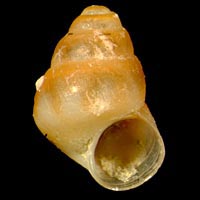|
< Previous family introduction |
|
|||||
 |
Family Eatoniellidae
|
|||||
|
The family Eatoniellidae is a group of minute molluscs that has its greatest density of species in the southern temperate region, with 43 species being known from New Zealand and 18 from southern Australia. Eight of the southern Australian species occur in New South Wales, but three of the eight barely reach into the state from the south. The family is defined on anatomical characters of the reproductive system, including the absence of a penis in the male, and the presence of a peg on the operculum. Animals are sometimes abundant in the lower littoral and shallow sublittoral zones, where they live mostly on algae (Ponder & Yoo, 1977). Three species are common in NSW, and can be collected, sometimes in abundance, by washing samples of intertidal algae or searching through beach shell grit. Ponder & Yoo (1977) revised the family in Australia, naming 13 new species. Five species, the more common ones, had previously been named by an assortment of authors from Frauenfeld in 1867 onwards. Family reference Ponder, W.F. & Yoo, E.K. 1977. A revision of the Eatoniellidae of Australia (Mollusca: Gastropoda: Littorinacea). Records of the Australian Museum 31: 606-658. Coverage All species of the family that occur in NSW are detailed here. Identification Notes The shells of eatoniellids are small or minute; five of the local species have maximum sizes under 1.3 mm, and the remainder are less than 2.5 mm. Shells are simple, broadly conical with about two teleoconch whorls, without axial or spiral sculpture. The umbilicus is a narrow slit or completely closed. The outer lip is either straight or bi-sinuate in profile, but is usually broken in beach-washed specimens. Positive placement of species into the family is difficult on shell characters alone, as the simple shell form occurs in several other groups. But some of the individual species can be recognised by their very small size and distinctive colouration. The most common species in NSW, Eatoniella atropurpurea, is the smallest conical shell generally found in beach washup, and has distinctive colouring, as does Crassitoniella flammea which is a little larger. |